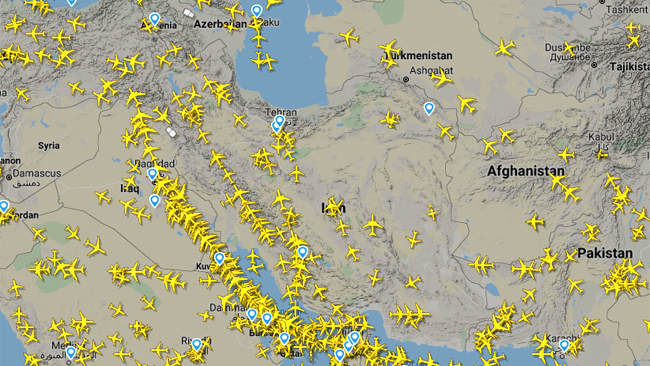A European civil aviation safety group has withdrawn its advisory for flights over the Iranian airspace in the wake of a military face-off between Iran and the United States.
The Integrated EU Aviation Security Risk Assessment Group said on Wednesday its decision came a day after it met to assess the most recent information related to the safety and security of commercial air transport over Iran and Iraq.
As an outcome of the meeting, the temporary recommendations for avoidance of all overflights of Iraq and Iran “as a precautionary measure have been withdrawn”, the group said in a statement.
The European Union Aviation Safety Agency (EASA) and the European Commission issued their advisories after the US assassinated top Iranian military commander General Qassem Soleimani and Iran responded to the terrorist act with a volley of missiles targeting two American bases in Iraq.
Iran’s air-defense units, on high alert against imminent American threats, also shot down in error a Ukrainian passenger plane outside Tehran, killing all 176 people on board.
On Monday, Dutch airline KLM said it had determined that it was safe again to fly over Iran and Iraq.

A screenshot from FlightRadar website taken on February 01, 2020 shows foreign airlines’ aircraft over Iran’s airspace.
The British and German governments have also issued a notice to airmen (NOTAM), stating that commercial airlines can once again fly safely over Iran and Iraq.
Qatar Airways, Emirates and several other Persian Gulf airlines continued to fly in Iraqi and Iranian airspace and to cities in both countries after European and Asian carriers rerouted planes.
Rerouting flights hurts profits of major airlines which were engaged in a cut-throat rivalry.
“Iranian airspace is important for all carriers in this region,” Adil al-Ghaith, Emirates’ senior vice president for commercial operations in the Persian Gulf, the Middle East and Iran, told Reuters recently.
Dubai-based Emirates and sister carrier flydubai together serve 10 cities in Iran and Iraq, and have continued to use the airspace of both countries for other flights, the news agency said.
Kuwait Airways and Abu Dhabi-based Etihad Airways have also continued using Iranian and Iraqi airspace, it added.
“We will continue to fly to Iran because Iran is an important country to us and it is our neighbor and we want to serve the people of Iran,” Qatar Airways Chief Executive Akbar al-Baker said on the sidelines of a Kuwait air show.
Qatar Airways stated it had no problem using the Iranian airspace, insisting that the airspace was completely safe. The Doha-based carrier said it did not lose any bookings during the military standoff between Iran and the US.
Bahrain’s Gulf Air, however, has redirected European flights away from Iraqi airspace and now flies longer, more fuel consuming routes over Saudi Arabia and Egypt.